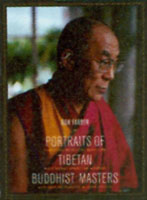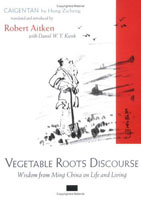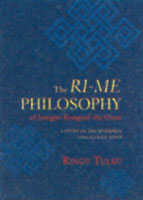PORTRAITS OF TIBETAN BUDDHIST MASTERS
Don Farber, text by Rebecca McClen Novick
University of California Press, 2005
191 pp.; $29.95 (cloth)

Photographer Don Farber has been chronicling Buddhist life since 1977, covering eight Buddhist countries to date. His latest work is the result of his efforts to record the last living Tibetan Buddhist masters, those who survived the turmoil and persecution of the Chinese invasion to carry on their traditions. Featuring rich color photographs accompanied by brief biographies and quotes from over seventy teachers from diverse Tibetan lineages, this collection also includes the young teachers carrying the traditions into the future. As Sogyal Rinpoche writes in his foreword, “Don Farber has conjured something across the transparent boundaries of time. He has captured something magical.” These seemingly simple portraits are a startlingly powerful means of conveyance for the wisdom and compassion embodied by these teachers and their traditions; this book is a profound offering to them, and a precious gift to their students.
VEGETABLE ROOTS DISCOURSE
Hong Zicheng; Robert Aitkin and Daniel W. Y. Kwok, Translators
Shoemaker and Hoard, 2006
224 pp.; $24.00 (cloth)

In 1592, as Shakespeare was writing the last lines of Henry VI, scholar and philosopher Hong Zicheng was working on a book of his own. The Vegetable Roots Discourse is a collection of 360 Taoist, Buddhist, and Confucian observations from sixteenth-century Ming China. Hong’s pocket-sized collection instructs us in the art of discovering meaning in the mundane and is as relevant today as it was four hundred years ago. This translation by Robert Aitken Roshi and historian Daniel W. Y. Kowk, displayed alongside the original Chinese, is full of timely wisdom: “The disaster of embracing power and influence is as tragic as it is swift. The taste of living simply is the most natural as it is the longest lasting.”
THE RI-ME PHILOSOPHY OF JAMGON KNOGTRUL THE GREAT
Ringu Tulku, edited by Ann Helm
Shambhala Publications, 2006
304 pp.; $35.00 (cloth)

Jamgon Kongtrul the Great [1813-1899] is known not only for his spiritual writings and scholarship but also for his efforts to unify and strengthen the disparate Buddhist schools of nineteenth-century Tibet. He and several other leading scholars founded the Ri-Me movement, which sought to span the ideological rifts that divided the traditions, while acknowledging each school’s unique qualities. In this new text, Naropa University professor Ringu Tulku presents an in-depth look at the Ri-Me movement and its leader. Tulku’s lucid history includes a biography of Jamgon Kongtrul the Great, summaries of the movement’s philosophies, and the practices and views of the major Tibetan lineages.
Thank you for subscribing to Tricycle! As a nonprofit, we depend on readers like you to keep Buddhist teachings and practices widely available.